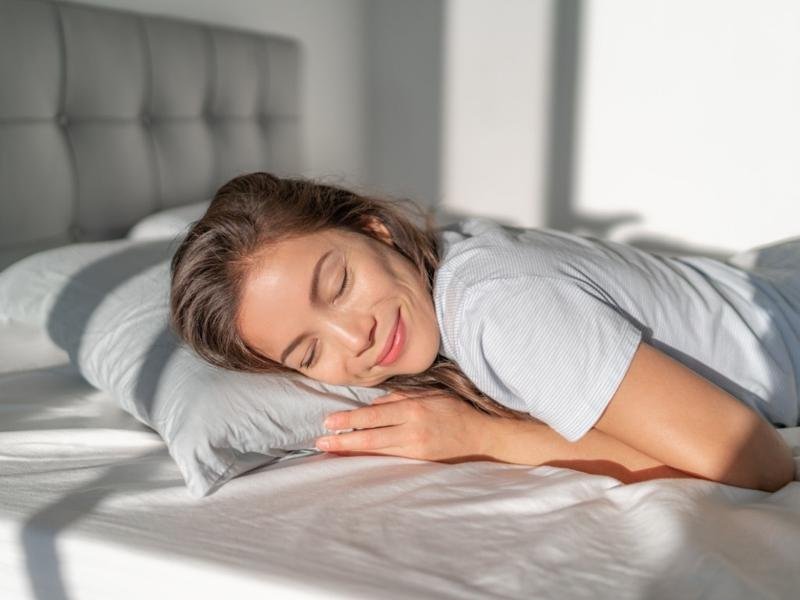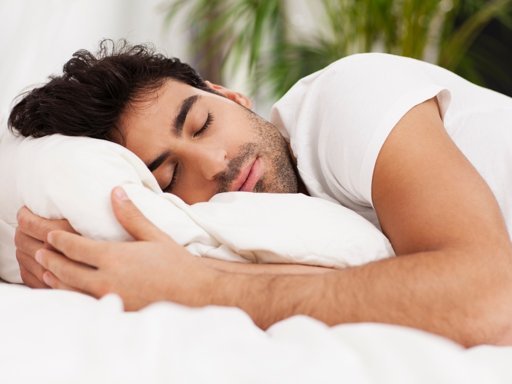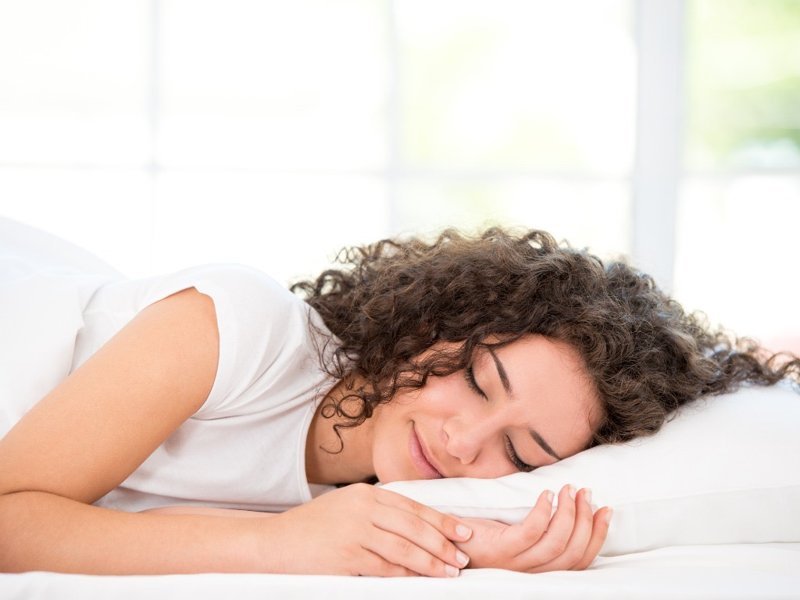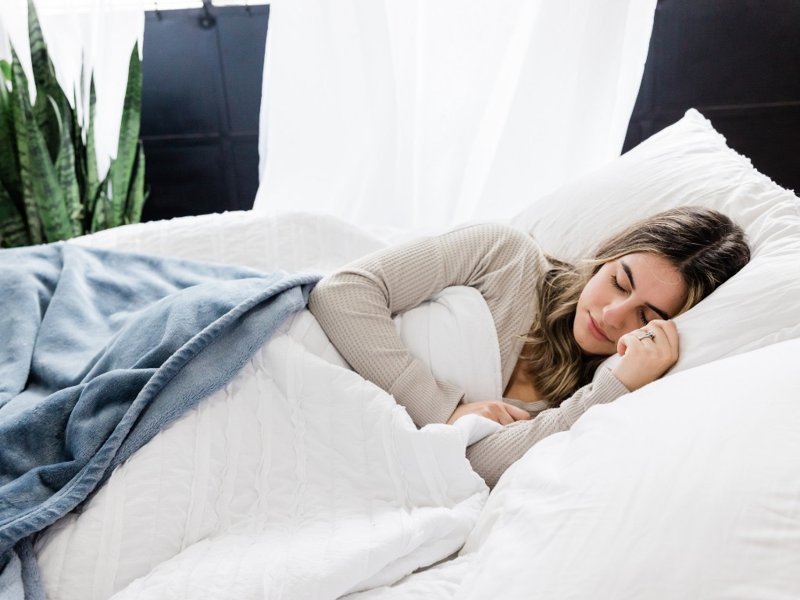
What if the way you sleep tonight shapes how clearly you think, feel, and connect tomorrow?
In the United States, sleep and mental health are closely linked. The American Psychological Association found in 2023 that bad sleep boosts anxiety and lowers happiness. So, improving your emotional well-being starts with better sleep.
Experts agree on this connection. Oludara Adeeyo says mental health is about how your brain works and what affects it, like sleep. Alison Seponara and KC Davis suggest simple habits to improve mental health, like regular sleep times and a quiet bedroom.
They also recommend gentle self-care on tough days, like a hot shower or slow breaths. This article offers five easy, science-backed tips for better sleep and mental health: gratitude, exercise, screen breaks, social connections, and prioritizing sleep. By making these small changes, you can strengthen your mental health and emotional well-being.
Understanding the Relationship Between Sleep and Mental Health
You’ve noticed how sleep affects your mood the next day. This shows the strong link between sleep and mental health. Good sleep helps you handle stress better, think more clearly, and cope with life’s ups and downs.
Experts say sleep is key for mental health. It affects how we connect with others, make decisions, and stay strong. The American Psychological Association found that not enough sleep leads to lower happiness and more anxiety. This is something many people experience during busy times.

How sleep affects mental health and daily functioning
Missing sleep makes it hard for your brain to manage emotions and distractions. This is how sleep impacts mental health every day. You might feel more annoyed, impatient, and prone to worry.
But on days when you get enough sleep, you focus better and make decisions more easily. You can step back, think things through, and handle stress before it gets out of hand. This helps you do better at work, in relationships, and in your daily routine.
Quality sleep and emotional well-being: mood, anxiety, and clarity
Good sleep and emotional well-being go hand in hand. Deep, consistent sleep helps keep your mood stable and reduces anxiety. You feel calmer and less prone to mood swings.
When you sleep well, you think more clearly. You can process information better instead of just reacting. This leads to more patience, problem-solving, and a kinder inner voice.
Why the importance of sleep for mental health goes beyond rest
Sleep is more than just downtime. It’s about replaying memories, sorting emotions, and recovering from stress. Your brain files away the day, filters out distractions, and gets ready for tomorrow.
Moving your body and eating right also support this process. A short walk, stretch, or dance session can release endorphins that help you relax and sleep better. Foods like berries, bananas, beans, whole grains, and salmon boost your mood. But too much caffeine, alcohol, refined carbs, and added sugars can upset your nerves and disrupt your sleep.
When to seek professional help for ongoing sleep or mood issues
If poor sleep or mood problems last, it’s time to get help. Signs include growing irritability, low motivation, trouble getting through the day, changes in appetite, or relying on substances to cope. After a stressful or traumatic event, extra support can help you stabilize.
Proven treatments like cognitive behavioral therapy for insomnia (CBT-I) can help. Sleep specialists offer this therapy. Platforms like Headspace also provide guided meditations and coaching to support your journey. Each step strengthens the connection between sleep and mental health, helping you build more stable days.
Sleep and Mental Health
You connect Sleep and Mental Health every day. Your brain’s mood, focus, and memory change with sleep. You can control your nightly routine.
Consistent sleep boosts mental clarity and emotional balance. Stick to regular sleep times, avoid caffeine late, and keep your room quiet and cool. Small changes can lead to big improvements.
Studies show short sleep increases stress and lowers happiness. That’s why good sleep habits are key for mental health. Less screen time, a cool bedroom, and a tidy space help you sleep better.
Morning light and daily exercise set your body clock. Walking, stretching, or cycling can improve mood and sleep. Taking short breaks from screens can also reduce anxiety.
On hard days, try simple self-care. A slow shower, deep breathing, or a quiet tea can help. These acts protect your emotional balance when you’re tired.
If habits aren’t enough, therapy can help. Cognitive behavioral therapy and talk therapy address sleep and mood issues. Digital tools like Headspace can support your practice.
Begin with one or two changes and check in weekly. You’ll see clearer thinking, more energy, and better mental clarity as your routine improves.

Daily Habits to Improve Sleep Hygiene and Mental Health
You can make small changes to improve your sleep and mood. These habits connect sleep and mental health, affecting how you feel and focus. By setting cues, you can reduce anxiety and keep your energy up.
Consistent routines: wake and sleep times, bedroom temperature, and light
Wake up and go to bed at the same time every day. This helps your body clock and shows sleep is key for mental health. Keep your room cool, around 60–65°F, and dim lights an hour before bed to help your body make melatonin.
Clear your nightstand and floor to reduce mental clutter. In the morning, get some sunlight to set your rhythm for better sleep and mood later.
Screen breaks and social media limits to reduce anxiety and improve sleep
Keep your phone out of the bedroom and turn off notifications. Set a tech-free time before bed to reduce anxiety and help you rest deeply. If scrolling makes you feel bad, remember that setting boundaries is good for your mood. Unfollow or mute as needed.
Remove high-trigger apps from your home screen on weeknights. These habits make it easier to fall asleep without worrying.
Movement and nutrition that support quality sleep and emotional well-being
Move your body for 20–30 minutes most days. Walk, stretch, dance, or try restorative yoga. This releases endorphins that help with stress and sleep. Avoid caffeine after 3 p.m. so you can sleep well.
Eat foods that help your mood and sleep: berries, bananas, beans, whole grains, and salmon. Stay hydrated and limit alcohol, caffeine, refined carbs, and sugars for better sleep and mental health.
Gentle self-care on difficult days to lower stress and improve resilience
Rest when you need to on tough days. Try a five-breath reset, a warm bath, or a long hot shower. If cooking is hard, choose a nutritious prepackaged meal and take care of yourself.
Make a small promise to yourself each day—like making your bed, drinking a morning glass of water, or writing three lines in a journal. Tools like Headspace offer guided meditations and sleepcasts that help you understand the importance of sleep for mental health and reduce anxiety without feeling overwhelmed.
| Habit | Why It Works | Simple Action | Benefit for Mood and Sleep |
|---|---|---|---|
| Fixed sleep-wake times | Stabilizes circadian rhythm | Set alarms for wake and wind-down | Improves quality sleep and emotional well-being |
| Cool, dark bedroom | Supports melatonin and deeper sleep | Keep room at 60–65°F and dim lights | Fewer awakenings and calmer mornings |
| Nightly tech cutoff | Limits blue light and mental stimulation | Charge phone outside the bedroom | Helps you fall asleep faster and reduce anxiety |
| Daily movement | Releases endorphins and eases tension | 20–30 minutes of walking or yoga | Steadier mood and deeper sleep cycles |
| Balanced nutrition | Provides steady energy and neurotransmitter support | Focus on whole grains, beans, berries, salmon | Supports sleep hygiene and mental health |
| Gentle self-care | Lowers stress on hard days | Breath work, warm bath, simple meals | Builds resilience and honors the importance of sleep for mental health |
Actionable Strategies for Better Nights and Brighter Days
Start small to build sleep momentum. Simple steps can improve your mental health by showing how sleep impacts daily life. Begin with habits you can do tonight.
Bedtime wind-down: calming rituals and cognitive behavioral tips for insomnia
Begin a 60-minute wind-down. Dim lights and stop screens. Slow your breathing: inhale for 2, exhale for 4, repeat for 12 cycles.
Try a warm shower, gentle stretches, or write a gratitude note with three items. Use CBT-I tips for a better night. Keep a consistent wake time and get out of bed if you can’t sleep.
Reserve the bed for sleep. When worries arise, write them down and balance with a calm thought. Yoga Nidra can also help: lie down, scan your body, and imagine waves moving from feet to head for 10–30 minutes.
This routine helps you relax and sleep better. It shows how sleep can improve your mental health by linking bed with rest, not stress.
Environment upgrades: quiet, clutter-free, 60–65°F for deeper rest
Create a calm sleep space. Make the room quiet, remove clutter, and lower light. Keep it cool at 60–65°F to help you rest better.
Block stray LEDs and use blackout curtains. Keep chargers outside the bedroom. These changes help protect your sleep and mental health by reducing distractions.
Daytime anchors: sunshine, brief outdoor time, and mindful breaks
Start your day early. Spend five minutes in the sun. Take a quick walk, open a window, or eat lunch outside to boost mood and focus.
Use mindful breaks to reset your mind. Try one minute of slow breathing between tasks and 30 minutes of tech-free time each afternoon. These anchors help maintain quality sleep and emotional well-being.
Connection and support: strengthening relationships to protect mental health
Keep your mood up with social connections. Send texts, make calls, or meet friends for walks or breakfast. Plan regular dinners to fight loneliness and stabilize your nervous system.
If sleep or mood issues last, seek help from a sleep specialist or therapist. Tools like Headspace can also offer meditations and sleep aids.
| Strategy | What to Do | Why It Helps | Timing |
|---|---|---|---|
| Wind-down ritual | Dim lights, 2-4 breathing for 12 cycles, warm shower, gentle stretch, three-item gratitude | Reduces arousal, supports quality sleep and emotional well-being | Last 60 minutes before bed |
| CBT-I tips | Consistent wake time, leave bed after 20–30 minutes awake, bed only for sleep, challenge worry | Builds strong relationship between sleep and mental health by retraining patterns | Night and morning |
| Yoga Nidra | Lie down, body scan, visualize slow waves, rest in awareness | Calms the nervous system and shows how sleep affects mental health | 10–30 minutes, evening |
| Environment upgrades | Quiet room, declutter, blackout curtains, cool to 60–65°F, reduce LEDs | Improves depth and continuity, reinforcing the importance of sleep for mental health | Set once; adjust nightly |
| Daytime anchors | 5–10 minutes of sunshine, brief outdoor time, mindful breaks, 30 minutes tech-free | Stabilizes circadian rhythm and supports quality sleep and emotional well-being | Morning and midday |
| Connection and support | Check-ins, morning walks, shared meals, professional help when needed | Buffers stress, protects mental health, complements CBT-I tips | Weekly plan; daily touchpoints |
Conclusion
Your sleep is key to your mental health. It affects your mood, anxiety, focus, and how you interact with others. A 2023 study by the American Psychological Association showed that sleep loss increases anxiety and lowers happiness. It also found that ongoing sleep disruptions can make symptoms worse over time.
By treating sleep and mental health as connected, you can improve your clarity and energy. This is important for work, family, and everyday life.
Improving your sleep for mental health is simple. Stick to a regular sleep schedule, aiming for 7–9 hours each night. Avoid caffeine after 3 p.m. and keep your room cool, around 60–65°F.
Also, reduce clutter and limit blue light before bed. Combine these habits with exercise, staying hydrated, and eating foods that support your mood. On tough days, practice gentle self-care to prevent stress from building up.
Begin with small changes and track what works for you. Try five daily habits: write a gratitude note, do some light exercise in the morning, take breaks from screens, connect with someone you trust, and set a bedtime. Over time, these habits will help you sleep better and feel more emotionally stable.
If your sleep or mood doesn’t improve, don’t hesitate to seek help. Cognitive Behavioral Therapy for Insomnia (CBT-I) and therapy are effective. Tools like Headspace can also help with mindfulness and sleep routines.
Taking care of your sleep is essential for a better day. With consistent effort, your sleep and mental health will improve. You’ll think more clearly, feel calmer, and have a better sense of balance. Keep what works, adjust what doesn’t, and watch your routine pay off in quality sleep and emotional well-being.
FAQ
How does sleep affect mental health and daily functioning?
Sleep is key for your mood, focus, and stress levels. Good sleep helps you manage emotions, think clearly, and be more patient. The American Psychological Association found in 2023 that not sleeping well makes you feel less happy and more anxious.Disrupted sleep can make anxiety and depression worse. So, sleep and mental health are closely linked. Poor sleep can make symptoms worse, and symptoms can also disrupt sleep.
Why is the importance of sleep for mental health more than “just rest”?
Sleep is not just rest; it’s an active process for your brain. It helps stabilize memory, clear waste, and reset your mood. Experts like Oludara Adeeyo say mental health is about brain function, shaped by habits like sleep.Good sleep supports emotional control, problem-solving, and resilience. These are essential for daily life. So, sleep’s role in mental health is more than just feeling rested.
What is sleep hygiene and how does it support emotional well-being?
Sleep hygiene means your routines and environment cues for rest. Aim for regular sleep and wake times. Limit caffeine after 3 p.m., keep your bedroom quiet and clutter-free, and set the temperature to about 60–65°F (16–18°C).These steps improve sleep quality. This, in turn, reduces anxiety, lifts your mood, and sharpens your thinking.
How many hours should you sleep for better mental health?
Most adults need 7–9 hours of sleep each night. Quality sleep is also important. It supports clearer thinking, steadier mood, and better emotional control.If you need more than 9 hours or don’t feel refreshed, talk to a healthcare professional.
What daily habits improve sleep and mental health at the same time?
Five habits help: gratitude, daily movement, screen breaks, social connection, and prioritizing sleep. A 20–30 minute walk, stretch, or dance boosts endorphins and improves sleep.Limit screens and social media at night to reduce mental overstimulation. Stay connected with friends, and keep a simple gratitude practice to set a calmer tone.
How do screen breaks and social media limits improve sleep and anxiety?
Blue light and constant alerts keep your brain on high alert. Set a tech cutoff about an hour before bed, turn off push notifications, and keep your phone outside the bedroom.Limiting social comparison reduces anxiety. This helps you fall asleep faster and sleep deeper.
What foods and drinks support quality sleep and emotional well-being?
Choose berries, bananas, beans, whole grains, and fatty fish like salmon for steady energy and mood support. Hydrate through the day. Limit alcohol, excess caffeine—especially after 3 p.m.—refined carbs, and added sugars.These can spike anxiety and disrupt sleep cycles.
What is a simple wind-down routine for better sleep?
Start 60 minutes before bed. Dim lights, power down screens, and try calming rituals: a warm shower, gentle stretches, a short gratitude list, or breath work (inhale 2 counts, exhale 4 counts for 12 cycles).Keep the bed for sleep only, and get up if you can’t sleep after 20–30 minutes.
How does movement help both sleep and mental health?
Regular movement releases endorphins, lowers anxiety, and supports deeper sleep. Try 20–30 minutes most days—walking, stretching, dancing, or restorative yoga.Morning or afternoon movement also strengthens circadian rhythms. This helps you fall asleep on time.
What bedroom environment is best for sleep hygiene and mental health?
Keep it cool (60–65°F/16–18°C), dark, quiet, and clutter-free. Reduce light exposure with shades, use white noise if helpful, and remove visual clutter to lower mental load.A calm space supports faster sleep onset and more restorative rest.
What are daytime anchors that reinforce better sleep and mood?
Brief sunlight exposure, short outdoor breaks, and regular meals cue your body clock. Even five minutes of morning light, a walk, or lunch outside can lift mood and align your circadian rhythm.Add 30 minutes of tech-free time to let your brain reset.
How can connection and support protect your mental health and sleep?
Social ties buffer stress and reduce loneliness, easing nighttime worry. Send a quick check-in text, plan a morning walk, or schedule weekly dinners.Stronger relationships foster emotional safety. This supports better sleep and more stable mood.
What should you do on difficult days when habits feel hard?
Keep it gentle and doable. Try a hot shower, brief breath work, or a nutritious prepackaged meal if cooking feels overwhelming. Choose one small promise—make your bed or drink a morning glass of water—to maintain momentum without self-criticism.
When should you seek professional help for sleep or mood issues?
Reach out if problems persist for two weeks or more—irritability, low motivation, trouble functioning, appetite changes, reliance on substances, or distress after a stressful event. Cognitive behavioral therapy for insomnia (CBT-I) is effective, and therapy helps even without a formal diagnosis.
What is CBT-I and how does it work?
Cognitive behavioral therapy for insomnia is a structured approach that improves sleep by changing unhelpful thoughts and behaviors. It includes a consistent wake time, reserving bed for sleep, getting up if you can’t sleep, and addressing worry.Many sleep specialists offer CBT-I, and digital tools can complement care.
Are there accessible tools to support sleep and mental health?
Yes. Headspace offers meditations, sleepcasts, and online therapy options in the United States. These tools can help you build routines, lower stress, and practice mindfulness alongside professional support.
How quickly will you notice benefits from improving sleep hygiene?
Many people feel changes within one to two weeks—faster sleep onset, steadier energy, and improved mood. Track your habits and symptoms. Start small, stay consistent, and build as your routine sticks.






